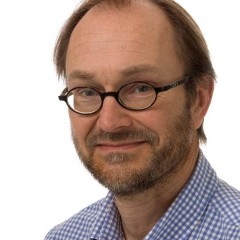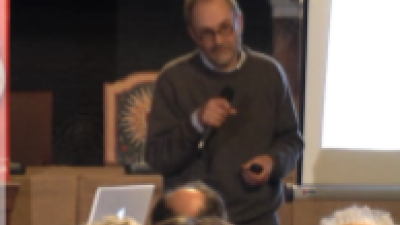
Prof. dr. Lennart Olsson
Fysisch geograafOok is Olsson coördinator van het Linnaeusprogramma, LUCID, dat wordt gesponsord door de Zweedse Wetenschapsraad Formas voor de periode 2008-2018, om sociale en natuurlijke dimensies van duurzaamheid te integreren.
Olsson promoveerde in 1985 in de fysische geografie, met als specialisatie de verwoestijning en in het bijzonder het gebruik van GIS, remote sensing en spatial modelling in het bestuderen van de interactie van samenleving en natuur in semi-aride Afrika. Zijn onderzoek richt zich met name op de relatie van de mens tot de natuur in de context van de aantasting van het land, klimaatverandering en voedselzekerheid. Hij was onderzoeker in Australië, de Verenigde Staten en Hong Kong. Bovendien is hij lid van diverse redactieraden, heeft hij gewerkt in opdracht van de VN en was hij coördinerend auteur van het IPCC 5th Assessment Report (Climate Change Impacts on Livelihoods and Poverty). Olsson was tevens hoofdauteur van het IPCC-rapport over Good Practice Guidance for LULUCF en hoofdauteur van UNEP's GEO-4(2006-2007). Ook is hij hoofd van het onderzoeksproject Earth System Governance (ESG).
---
Lennart Olsson is professor of Physical Geography and the founding director of LUCSUS (Lund University Centre for Sustainability Studies) since 2000. He is also the coordinator for a Linnaeus programme, LUCID, sponsored by The Swedish Research Council 'Formas' for the period 2008 - 2018 on integrating social and natural dimensions of sustainability.
Olsson holds a Ph.D. in Physical Geography (1985) specialising in desertification and particularly the use of GIS, remote sensing and spatial modelling to study the interaction of nature and society in semi-arid Africa. His research focus is human-nature interaction in the context of land degradation, climate change and food security; research tools include GIS, remote sensing, spatial modelling and systems analysis. He has held research positions in Australia, USA and Hong Kong. International assignments include membership of several international editorial boards, UN assignments, Coordinating Lead Author of IPCC 5th Assessment Report (Climate Change Impacts on Livelihoods and Poverty) and Lead Author on IPCC report on Good Practice Guidance for LULUCF (2002-04) and lead author of UNEP's GEO-4 (2006-07). He is Lead Faculty in the global research project Earth System Governance (ESG).








